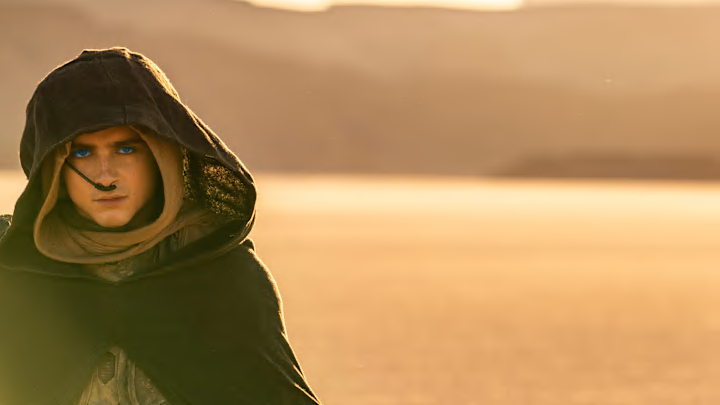5. God Emperor of Dune (1981)

The fourth entry in the series, God Emperor of Dune is a controversial book among Dune fans. Some love it for its philosophical depth and its daring portrayal of Leto II, the human-hybrid sandworm who rules the galaxy with an iron fist. Others hate it for its slow pace, its lack of action, and its deviation from the original trilogy. I belong to the former group. I think God Emperor of Dune is a masterpiece of science fiction, and one of the most profound books I have ever read.
Beware, there will be SPOILERS for God Emperor of Dune below!
One of the most memorable scenes in the book is when Leto II meets the latest in a long line of glola clones made in the image of Duncan Idaho, an old friend and loyal servant of Leto's father Paul Atreides. The ghola is programmed by the Bene Gesserit and the Tleilaxu to assassinate Leto II, but he also has some memories of his previous incarnations. Leto II tries to awaken those memories by confronting him with his past and his future. Leto shows Duncan the Golden Path, Leto's longterm vision for humanity's survival and evolution, which requires Leto to become a tyrant and sacrifice himself. He also reveals that he has been creating and killing Duncan Idaho ghola for thousands of years, as a way of preserving a part of his humanity and testing his own resolve.
This scene is a powerful illustration of Leto II's burden. He is the only one who can see the Golden Path, and he must endure the hatred and fear of those he loves and protects. He is also the only one who can remember the past, and he must witness the death and rebirth of his friends repeatedly. He is trapped in his own destiny, and he must face it alone.
Another scene that I love is when Leto II talks to Hwi Noree, his lover and opposite. Hwi Noree comes from the Ixian culture, which values technology and rationality. She is also a product of Tleilaxu manipulation, designed to be the perfect mate for Leto II. She is gentle, compassionate, and innocent. She is everything that Leto II is not, and everything that he desires.
Leto II tells Hwi about his childhood, when he was still human and had a sister named Ghanima. He tells her about their bond, their struggle, and their choice. He tells her how he merged with a sandworm larva, how he became the God Emperor, and how he lost his sister. He tells her how he loves her, how he needs her, how he fears for her.
This scene brings into beautiful contrast the gap between Leto II's monstrous appearance and his human emotions. He is a god, but he is also a man. He is a worm, but he is also a lover. He is a ruler, but he is also a brother. He is a paradox, but he is also a person.
One of the most fascinating aspects of the book is its exploration of various philosophical themes, such as free will, determinism, morality, religion, history, and evolution. Leto II is a great philosopher-king who has insights into the nature of reality and humanity that no one else can match. He challenges the beliefs and values of every faction and every individual that he encounters. He exposes their flaws and their contradictions. He also reveals his own flaws and contradictions.
One of my favourite quotes from the book is: "The power to destroy a thing is the absolute control over it." This quote summarizes Leto II's philosophy of governance. He controls everything by threatening to destroy everything. He imposes peace by creating fear. He preserves diversity by enforcing conformity. He ensures freedom by limiting choice.
This quote also applies to himself. He destroys himself by controlling himself. He sacrifices his own happiness for the sake of humanity's survival. He becomes a monster to save humanity from itself.
God Emperor of Dune is not an easy book to read or to enjoy. It is dense, complex, and challenging. It requires patience, attention, and reflection. It may not appeal to everyone's taste or preference.
